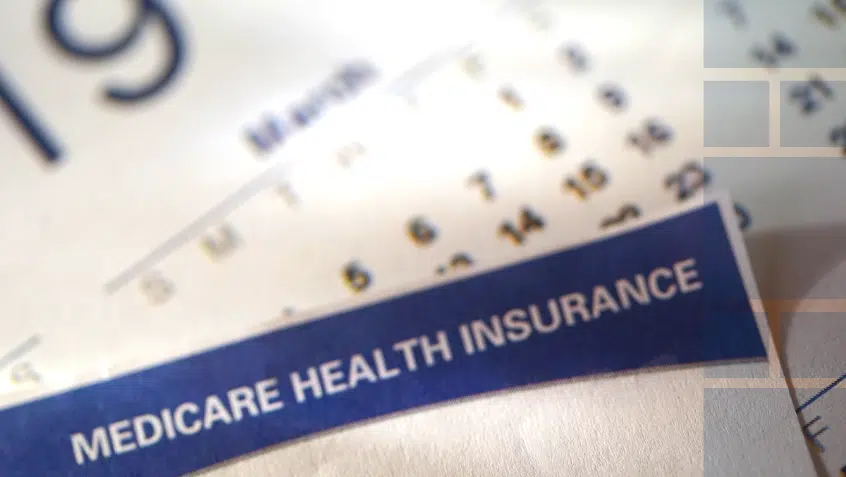Join Us Live for a Discussion on Medicare, Democracy, and the Future of Health Care
“Build Back Better” Key Health Provisions Begin to Take Shape

Last week, the House Committees with purview over Medicare—Ways & Means and Energy & Commerce—finished marking up their sections of the “Build Back Better” budget reconciliation bill.
Given their shared jurisdiction, the committees considered similar health care provisions. As outlined below, they advanced several of Medicare Rights’ priorities independently and jointly— including expanding Medicare Part B to cover more comprehensive vision, dental, and hearing services; funding for Medicaid home- and community-based services (HCBS); and prescription drug reform.
Key Provisions Include:
- Dental Coverage—Beginning January 1, 2028, Medicare would provide coverage for preventive and screening services as well as basic and major dental treatments. Beneficiaries would pay 20% cost-sharing for preventive, screening, and basic services. Cost-sharing for major services would be phased in over time, reaching 50% in 2032.
The draft bill defines preventive and screening services as oral exams, dental cleanings, dental x-rays performed in a dentist or oral health professional’s office, and fluoride treatments. Basic treatments may include basic tooth restorations, basic periodontal services, tooth extractions, and oral disease management services, while major treatments may include major tooth restorations, major periodontal services, bridges, crowns, and root canals. The new benefit would also cover a full or partial set of dentures once every five years, or more frequently if necessary.
- Hearing Coverage—Beginning on October 1, 2023, qualified audiologists would receive Medicare payments for delivering aural rehabilitation and treatment services. Hearing aids would also be covered for people with severe or profound hearing loss in one or both ears, once every five years.
- Vision Coverage—On October 1, 2022, Medicare would begin reimbursing ophthalmologists and optometrists for one routine eye exam and one contact lens or eyeglass fitting every two years. Beneficiaries would pay 20% cost-sharing, and Medicare would contribute up to $85 for the two-year supply of eyeglasses or contact lenses.
- Medicaid HCBS—The committee endorsed increasing Medicaid HCBS funding by $190 billion. This would be a significant step but is lower than the $400 billion supported by the White House and advocates like Medicare Rights, and lower than many advocates think is needed. We appreciate its inclusion and continue to urge Congress to pass full funding, as outlined in the Better Care Better Jobs Act (S. 2210/H.R. 4131). The Committee also advanced other important Medicaid HCBS improvements, including making the Money Follows the Person and the spousal impoverishment programs permanent.
- Prescription Drug Reform—Though both committees considered provisions allowing Medicare to negotiate prescription drug prices, it was only adopted by Ways & Means, with every Democrat except Rep. Stephanie Murphy (D-FL) voting in favor. On Energy & Commerce, three Democrats—Reps. Scott Peters (D-CA), Kathleen Rice (D-NY), and Kurt Schrader (D-OR)—joined every Republican on the panel in opposition, effectively blocking the Committee’s approval.
Despite this setback, the language could still be in the bill that leadership brings to the floor since Ways & Means adopted it. However, Democrats have tight margins for final passage: they can only lose three votes in the House and none in the Senate, where broad Medicare negotiation was always thought to be a long shot. Last week’s opposition underscores those dynamics and squarely puts the provision—which would generate close to $500 billion in savings to pay for other health care changes—at risk.
The Committee-approved sections are now with the House Budget Committee, which will compile and markup the full bill. The combined legislation will then go to the House Rules Committee, where it will receive another hearing and be subject to amendments. After that, it will be ready for a floor vote.
Though such a vote was originally planned for September 27, that timing is expected to slip, as Committee work and negotiations continue. In particular, the drug pricing language will likely need to be reworked and scaled back, which could lead to cuts elsewhere, including the bill’s long overdue Medicare and Medicaid improvements.
With the size and scope of the House bill in flux and the Senate yet to unveil its version, now is a critical time to weigh in with your lawmakers. Use our action center to get in touch—even if you already have!—and urge them to ensure necessary health care reforms are in the final reconciliation bill.
Weigh in today! Tell Congress to advance Medicare and Medicaid improvements.
Read a summary of the considered Energy & Commerce and Ways & Means provisions.
Show Comments
We welcome thoughtful, respectful discussion on our website. To maintain a safe and constructive environment, comments that include profanity or violent, threatening language will be hidden. We may ban commentors who repeatedly cross these guidelines.
Help Us Protect & Strengthen Medicare
Donate today and make a lasting impact
More than 67 million people rely on Medicare—but many still face barriers to the care they need. With your support, we provide free, unbiased help to people navigating Medicare and work across the country with federal and state advocates to protect Medicare’s future and address the needs of those it serves.
The Latest
Most Read
Add Medicare to Your Inbox
Sign up to receive Medicare news, policy developments, and other useful updates from the Medicare Rights.
View this profile on InstagramMedicare Rights Center (@medicarerights) • Instagram photos and videos








